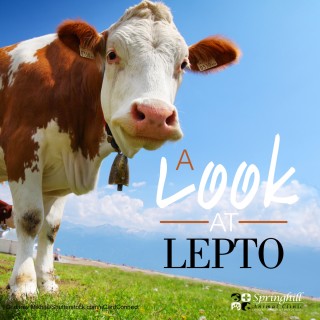Leptospirosis (lepto) is a zoonotic bacterial disease that can affect both domestic and wild animals, as well as people. Cattle, pigs and dogs are the main domestic animal carriers of the disease. Lepto can be transmitted directly from animal to animal, or indirectly through the environment. The most common means of transmission in cattle is through contact with infected urine. The bacteria can enter the bovine’s body through the mouth, eyes, skin abrasions or gastrointestinal tract. Lepto is most dangerous to calves, who may experience high fever, anemia, red urine and jaundice before succumbing to the disease. Adult cattle typically don’t die from lepto, but lactating cows produce less milk, which is thick and yellow, and infected pregnant cows may give birth to weak calves or lose the calf altogether.
Fortunately, lepto does respond to antibiotic treatment, but like many diseases, the best cure is prevention and cattle should be proactively vaccinated against the disease, including calves less than six months old. It’s also beneficial to keep your herd’s environment as sanitary as possible, such as avoiding puddles of standing, stagnant water.
Your cattle are a valuable investment. Let us work with you to develop and implement a preventive vaccination regimen to protect your herd.

